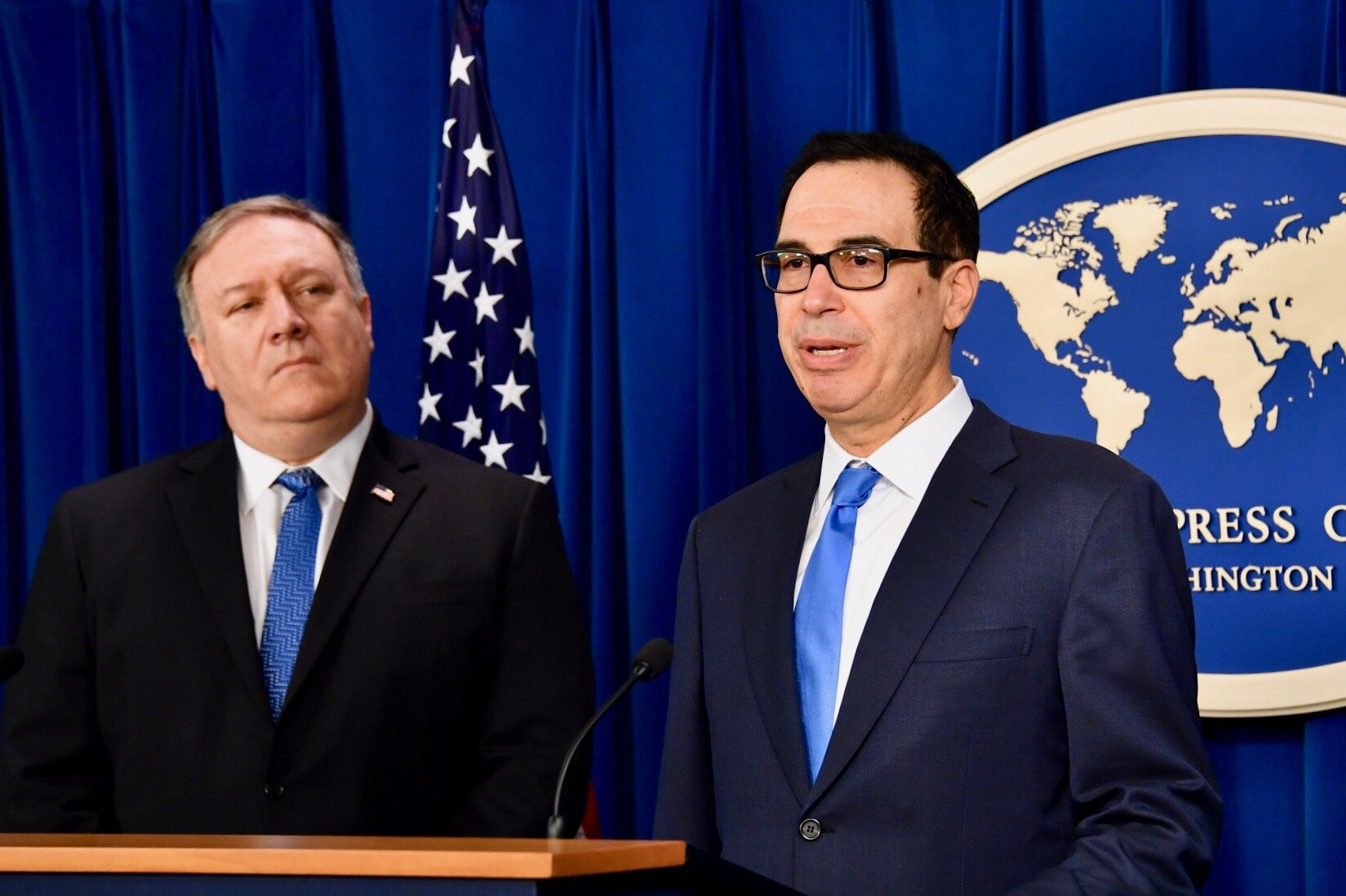Iran’s Economy Contracts; IMF Predicts Rebound in 2020
According to the IMF, U.S. sanctions have contributed to a contraction of Iran’s economy. (Flickr)
The International Monetary Fund (IMF) attributed a Middle Eastern growth slowdown to a contraction of Iran’s economy in its latest report for the Middle East and Central Asia. The report cited volatile oil prices, rising social unrest, and pressure from U.S. sanctions as reasons for concern within Iran but also predicted that a positive shift will follow this year’s slowdown. The IMF report projected Iran’s fiscal deficit increasing from 4.5 percent this year to 5.1 percent in 2020, paralleled by a 9.5 percent overall contraction. However, the report concluded that, despite harsh U.S. sanctions, the recession will end in 2020 when Iran’s economy returns to zero growth—as sanctions are unlikely to increase.
The Tehran Times emphasized Iran’s more positive 2020 projections, while Bloomberg, CNBC, and other Western outlets discussed the immediate impact of U.S. sanctions for fiscal year 2019. President Donald Trump has repeatedly asserted that “maximum pressure” on Iran will topple the nation’s economy, but the IMF’s 2020 projections counter this claim. Furthermore, Bloomberg News’ Esfandyar Batmangheldij contends that Iran’s 2020 rebound advantages Washington, as Iran will be more willing to negotiate with the U.S. from a “position of strength.” Batmangheldij also notes that, because Iran’s currency has appreciated 40 percent against the dollar since May 2019, the recent contraction should not be understood as permanent.
According to Iran’s Financial Tribune, balancing the 2020 budget remains a formidable challenge. The IMF reported that Iran would need to price oil at $194.6 a barrel to achieve a budget equilibrium, though Iran sold at just above $62 per barrel last week. The year 2020 will be difficult for Iran, but Jihad Azour, director of the IMF’s Middle East and Central Asia Department, says that cutting further losses characterizes a small victory for Tehran. “The estimate is that... sanctions that were reintroduced last year [were] tightened this year, [but] next year will not have an additional impact,” Azour told Reuters.
The IMF estimated that Iran’s inflation rate will drop from 35.7 percent to 31 percent in the coming year, leading Azour to further recommend that Iran align the official exchange rate and market exchange rate to prevent future inflationary spirals. In the short term, Trump’s pressure on Iran appears successful, as this year's 9.5-percent contraction represents Iran’s worst economic performance since 1984. However, forecasts indicate that the downward trend is temporary, and Washington-Tehran negotiations might improve as Iran finds greater economic stability.

